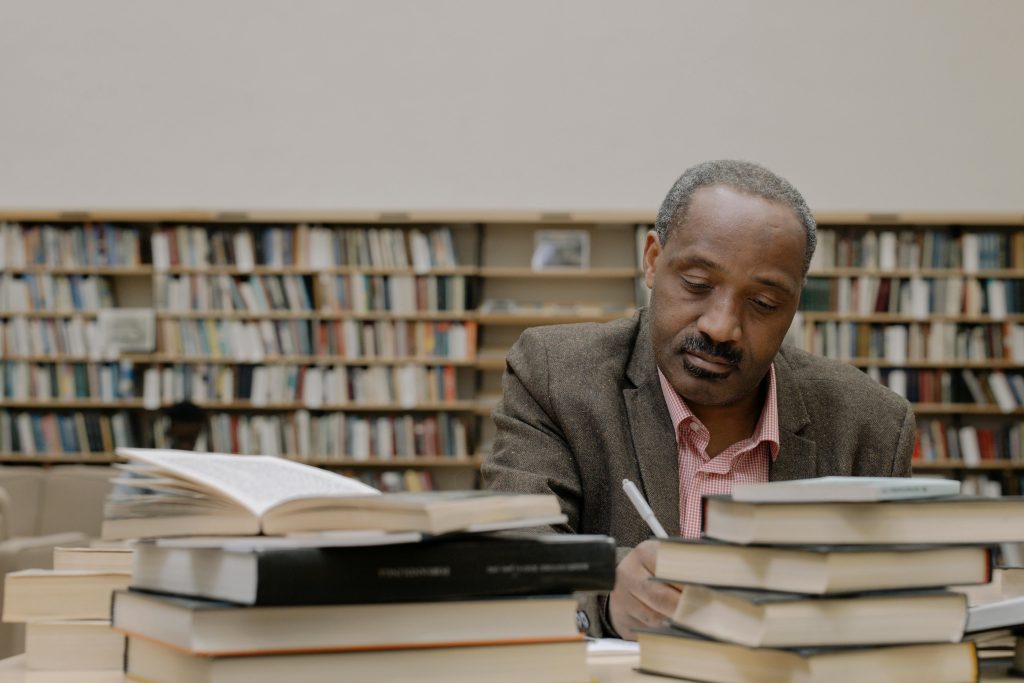GFZ Helmholtz Center for Geoscience Potsdam Germany: Apply for the RIFS Fellow Programme 2026

Are you a passionate researcher, policymaker, entrepreneur, artist, or activist dedicated to tackling the world’s pressing sustainability challenges? Do you dream of collaborating with an international network of experts in a cutting-edge research environment? Then the RIFS Fellow Programme 2026 at the prestigious GFZ Helmholtz Centre for Geosciences in Potsdam, Germany, could be the transformative opportunity you’ve been waiting for!
The Research Institute for Sustainability (RIFS), an integral part of the GFZ, is a dynamic and interdisciplinary institute committed to investigating, identifying, and advancing pathways towards a more sustainable future. Their Fellow Programme embodies this commitment by bringing together exceptional individuals from diverse backgrounds and countries to work collaboratively on innovative solutions.
What is the RIFS Fellow Programme?
The RIFS Fellow Programme offers a unique platform for you to:
- Develop Groundbreaking Ideas: Dedicate 6 to 12 months (with potential extension) to pursue your own research project related to sustainability.
- Collaborate Internationally: Work closely with RIFS research groups, projects, and a vibrant community of fellows from around the globe.
- Engage Transdisciplinarily: Connect with experts from academia, public policy, the private sector, civil society, media, and the arts.
- Translate Ideas into Impact: Develop practical outcomes that can contribute to real-world sustainable transformations.
- Become Part of a Global Network: Join a thriving network of over 300 RIFS alumni from more than 50 countries.
Who Should Apply?
The RIFS Fellow Programme encourages applications from a wide range of individuals who are passionate about sustainability, including:
- Academics: Researchers with a PhD or equivalent experience in relevant fields.
- Policymakers: Individuals working in government or international organizations focused on sustainability issues.
- Private Sector Professionals: Entrepreneurs and innovators developing sustainable business models.
- Civil Society Actors: Leaders and activists driving sustainability initiatives within NGOs and communities.
- Media and Arts Professionals: Communicators and artists using their platforms to raise awareness and inspire action on sustainability.
Key Requirements:
- You must propose a project that aligns with RIFS’ overarching Research Themes and at least one of their relevant Research Groups. Multidisciplinary and multi-group proposals are highly encouraged.
- Non-academic applicants should have at least 3 to 5 years of relevant professional experience.
- A strong commitment to collaborative and transdisciplinary work is essential.
What Kind of Projects Are Supported?
RIFS welcomes innovative project proposals across a broad spectrum of activities, including but not limited to:
- Scientific Research: Conducting cutting-edge research on sustainability challenges and solutions.
- Policy Recommendations: Developing evidence-based policy briefs and recommendations for governments and international bodies.
- Sustainable Business Model Development: Creating and analyzing innovative business approaches that promote sustainability.
- Artistic Expressions: Using creative mediums to communicate sustainability issues and inspire public engagement.
- Public Outreach and Education: Developing educational materials and campaigns to raise awareness about sustainability.
- Engagement in Social, Economic, or Political Discourses: Contributing to public debates and shaping narratives around sustainability.
What You Can Expect as a RIFS Fellow:
- Monthly Stipend: Financial support adjusted based on your experience and family situation.
- Relocation and Travel Reimbursement: Assistance with travel costs to and from Potsdam, including for accompanying family members.
- Accommodation Support: Help with finding accommodation in Potsdam, with limited access to RIFS housing.
- Visa and Residency Assistance: Support with navigating the German visa and residency processes.
- Integration into the RIFS Community: Full access to RIFS facilities, resources, and a vibrant international network.
Ready to Shape the Future? Apply Now!
This is your chance to contribute to impactful sustainability research and become part of a global network of change-makers. Don’t miss this incredible opportunity to advance your ideas at the renowned GFZ Helmholtz Centre for Geosciences in Potsdam, Germany.
The application deadline for the RIFS Fellow Programme 2026 is June 9th, 2025, at 23:59 CET.
Find detailed information about the research themes, application process, and submit your application here
We encourage passionate and driven individuals from all corners of the globe to apply and contribute to building a more sustainable future!

GFZ Helmholtz Center for Geoscience Potsdam Germany: Apply for the RIFS Fellow Programme 2026
Germany has long been a popular destination for international students, renowned for its high-quality education and relatively affordable living costs. For those seeking financial assistance, a diverse range of scholarships and fellowships are available. Here’s a guide to some key opportunities:
For Graduates, Doctoral Students, and Postdocs:
The German Academic Exchange Service (DAAD) is the primary organization for promoting academic exchange between Germany and the rest of the world. They offer a vast array of scholarships for international students and researchers at the graduate, doctoral, and postdoctoral levels. DAAD scholarships often cover monthly stipends (e.g., €934 for graduates, €1300 for doctoral candidates), travel allowances, health insurance, and sometimes even tuition fees and research allowances. Be sure to explore their comprehensive Scholarship Database (www.funding-guide.de) to find programs tailored to your field and academic level.
Other Governmental and Government-Related Organizations:
Several other foundations with close ties to the German government also provide significant funding:
- Konrad Adenauer Foundation (KAS) Scholarships: These are awarded to international postgraduate students under 30 with a university degree and above-average academic performance who demonstrate an interest in political issues, democracy, and human rights. Good German language skills (B2 level) are usually required.
- Friedrich Ebert Stiftung (FES) Scholarships: Aimed at both German and international students pursuing Bachelor’s, Master’s, or PhD degrees in Germany, FES scholarships consider socio-political engagement in addition to academic merit.
- Heinrich Böll Foundation Scholarships: These scholarships support international students at the Master’s and PhD levels who demonstrate academic excellence and a commitment to ecological and social issues.
University-Specific Scholarships:
Many German universities offer their own scholarship programs to attract talented international students. These can vary widely in terms of eligibility criteria and benefits. It’s essential to check the international student or financial aid sections of the websites of the universities you are interested in. Examples include merit-based scholarships, scholarships for students from specific regions, or those tied to particular programs.
Other Notable Scholarship and Fellowship Providers:
- Alexander von Humboldt Foundation: Offers research fellowships for postdoctoral researchers and experienced scientists of all nationalities and disciplines.
- Max Planck Society: Provides various funding opportunities for doctoral students and postdoctoral researchers within its numerous research institutes. The International Max Planck Research Schools (IMPRS) offer structured PhD programs with attractive funding.
- Helmholtz Association: Offers annual fellowships for doctoral and postdoctoral researchers to conduct research at one of their centers.
- Erasmus+: This European Union program provides grants for study exchanges in Germany for students from participating countries.
Tips for Finding and Applying for Scholarships:
- Start your research early: Scholarship application processes can be lengthy.
- Carefully read eligibility criteria: Ensure you meet all the requirements before applying.
- Tailor your application: Highlight your relevant skills and experiences, and clearly articulate your motivation for studying or researching in Germany.
- Proofread everything meticulously: Errors can weaken your application.
- Seek letters of recommendation early: Give your referees ample time to write strong letters.
Germany offers a rich landscape of scholarship and fellowship opportunities for international students and researchers. While competition can be significant, thorough research and a well-prepared application can greatly increase your chances of securing funding to support your academic pursuits in this dynamic and innovative country. Explore the resources mentioned above and take the first step towards your German adventure!

GFZ Helmholtz Center for Geoscience Potsdam Germany: Apply for the RIFS Fellow Programme 2026
The question of whether it’s hard to get a scholarship in Germany is a common one for prospective international students. The truth is, while it requires effort and a strategic approach, it’s definitely achievable. It’s not necessarily “easy,” but with the right preparation, you can significantly increase your chances of securing funding for your studies.
Why It Might Seem Difficult (But Isn’t Impossible):
- Competition: Germany is a popular study destination, leading to a high number of applicants for many scholarships, especially the fully funded and prestigious ones.
- Specific Requirements: Each scholarship provider (DAAD, foundations, universities) has its own set of eligibility criteria, application processes, and deadlines, which can feel overwhelming.
- Language Considerations: While many programs are in English, some scholarships might prefer or require German language proficiency.
Why It’s Attainable with the Right Approach:
- Abundance of Opportunities: Germany offers a wide range of scholarships and fellowships at various academic levels (Bachelor’s, Master’s, PhD, Postdoc) from numerous sources.
- Government Support: The German Academic Exchange Service (DAAD) is a major provider, offering numerous scholarships with varying levels of funding, including living stipends, tuition waivers, and travel allowances.
- Foundation Support: Political foundations like the Konrad Adenauer Foundation (KAS), Friedrich Ebert Stiftung (FES), and Heinrich Böll Foundation offer scholarships based on academic merit and alignment with their values.
- University-Specific Scholarships: Many German universities provide their own scholarships to attract talented international students. These can be merit-based, need-based, or program-specific.1
- Other Organizations: Institutions like the Alexander von Humboldt Foundation, Max Planck Society, and Helmholtz Association offer prestigious research fellowships.
Your Strategy for Scholarship Success in Germany:
- Targeted Research: Don’t just look for “any” scholarship. Identify those specifically for your nationality, field of study, and academic level. The DAAD scholarship database (www.funding-guide.de) is an excellent starting point. Explore the websites of foundations and your chosen universities.
- Understand Eligibility: Carefully review the eligibility criteria for each scholarship. Pay attention to academic requirements, language proficiency,2 work experience (if required), and any specific focus areas.
- Craft a Strong Application: Your application should highlight your academic achievements, motivation for studying in Germany, relevant skills and experiences, and how the scholarship will help you achieve your goals.
- Compelling Motivation Letter: This is your chance to stand out. Clearly articulate why you deserve the scholarship and how your studies or research will contribute to your field.
- Excellent References: Choose referees who know you well and can provide strong, specific recommendations. Give them ample time and information.
- Language Proficiency: If the program is in English, ensure you meet the required English language test scores (e.g., IELTS, TOEFL). If German is required or beneficial, showcase your German language skills.
- Start Early and Be Organized: Scholarship application processes can be lengthy. Begin your research and preparation well in advance of deadlines and keep track of all requirements and submission dates.
- Apply to Multiple Scholarships: Increase your chances by applying to several scholarships for which you are eligible.
While securing a scholarship in Germany demands effort, meticulous research, and a well-prepared application, it is definitely within reach for many international students. The key is to be proactive, target your search effectively, and present a compelling case for why you deserve the funding. With dedication and the right approach, you can unlock the door to a high-quality and affordable education in Germany.